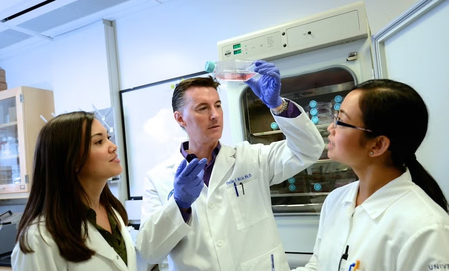
New York, July 20 (IANS) A team of US researchers has found that inhaling agricultural dust may pose significant risks to gut health for workers in animal agriculture.
Led by Declan McCole, a professor of biomedical sciences in the, a University of California, Riverside School of Medicine, the study expands on prior findings that hog farm dust causes airway inflammation.
The study in the Journal of Applied Toxicology found that inhaling this dust also alters the gut microbiome and impairs intestinal function, including increased “leaky gut” or intestinal permeability.
Leaky gut is associated with a range of chronic diseases, including inflammatory bowel disease, celiac disease, and type 1 diabetes.
“Exposure to swine farm dust, which contains high levels of bacteria and endotoxins, caused both airway inflammation and increased passage of gut bacterial products into the bloodstream in our mouse models,” said Melisa Crawford, a former postdoctoral researcher in McCole’s lab and the paper’s first author. “But what’s especially striking is the impact we observed on the gut microbiome and metabolism.”
The researchers exposed mice intra-nasally to hog dust extract for three weeks. The mice showed a significant drop in beneficial bacterial species, including Akkermansia muciniphila, Clostridium sp. ASF356, and Lachnospiraceae bacterium.
The research team also found decreased levels of critical compounds in the gut of the mice, such as riboflavin, nicotinic acid, inosine, and leucine — key players in energy metabolism, immune regulation, and gut barrier maintenance.
“While most research has focused on the respiratory effects of farm dust, our findings clearly show that inhaled pollutants can have systemic consequences,” McCole said. “This research underscores the importance of considering the gut–lung axis when assessing the health risks of bio-aerosol exposure in agriculture.
The study builds on growing evidence that pollution from concentrated animal feeding operations can impact multiple organ systems.
—IANS
na/
